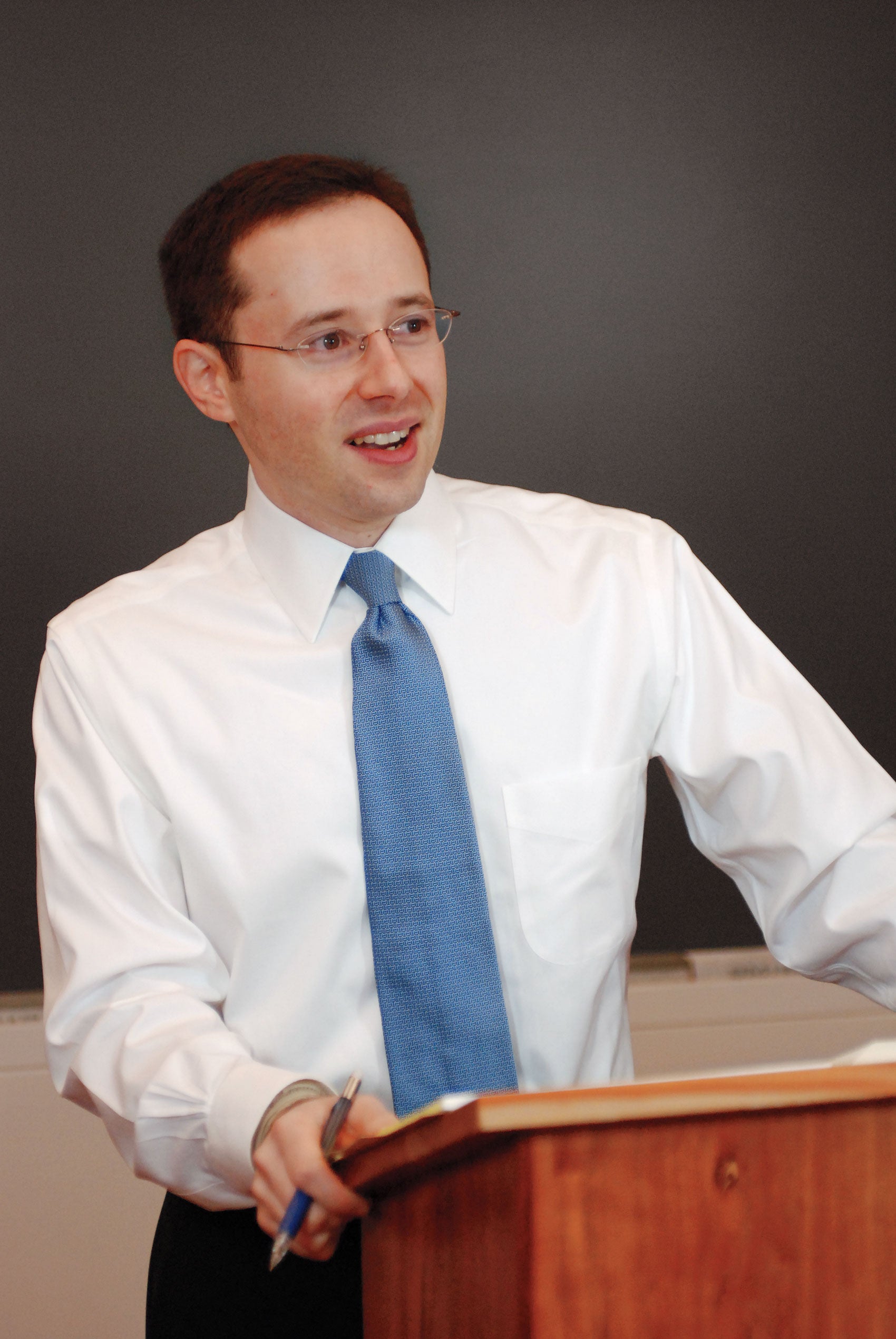Robert H. Sitkoff, the John L. Gray Professor of Law at Harvard Law School, was elected an Academic Fellow of the American College of Trust and Estate Counsel, a national professional organization of approximately 2,600 lawyers who specialize in trusts and estates. ACTEC’s mission is to improve trusts and estates representation, and to pursue reform of the rules of probate, trusts, tax, and professional responsibility that pertain to trusts and estates matters.
Sitkoff was recognized for his outstanding contributions to the field through his scholarship, teaching, lecturing, and professional activities. Sitkoff previously delivered the Joseph Trachtman Memorial Lecture at the 2009 ACTEC Annual Meeting.
Dean Martha Minow said: “Rob Sitkoff is already one of the preeminent scholars of trust and estates law. He is known for rigorous legal analysis that is informed by equally rigorous empirical analysis. Carrying forward the great tradition of excellence in this field at Harvard Law School, he is in line with earlier giants including Austin Wakeman Scott, Barton Leach, and James Casner. His election as a fellow of ACTEC is richly deserved.”
“Professor Sitkoff is an imaginative and energetic educator in Trusts and Estates law,” said George Cushing ’70, who nominated Sitkoff to the ACTEC. “We will indeed be fortunate to have the benefit of his participation as an Academic Fellow in ACTEC’s educational programs, in addition to his many contributions to the field through his teaching and scholarly writings.” Cushing is a partner at K&L Gates and also an ACTEC fellow.
Sitkoff joined the HLS faculty in 2007 as the John L. Gray Professor of Law. His principal research focus is economic and empirical analysis of the law of trusts and estates. His work has been published in leading scholarly journals such as the Yale Law Journal, the Columbia Law Review, and the Journal of Law and Economics. Sitkoff is a co-author of “Wills, Trusts, and Estates,” the leading American coursebook on trusts and estates. He is currently working on a series of empirical studies of trust law reforms that will form the core of a book to be published by Yale University Press (co-authored with Max Schanzenbach of Northwestern University).
In addition to his research and teaching, Sitkoff is an active participant in trusts and estates law reform. Sitkoff serves under gubernatorial appointment on the Uniform Law Commission, for which he is a member of the Joint Editorial Board for Uniform Trusts and Estates Acts, the principal oversight body for all uniform laws in the field. He is also a member of the drafting committee that is revising the Uniform Premarital and Marital Agreements Act, and he served as the reporter for the Uniform Statutory Trust Entity Act (2009). A member of the American Law Institute, Sitkoff participates in the Members’ Consultative Groups for the Restatement (Third) of Trusts and Restatement (Third) of Property: Wills and Other Donative Transfers.
In 2007, Sitkoff was named an up-and-coming young lawyer by Lawyer’s Weekly USA. His research has been featured in The Wall Street Journal, Business Week, Financial Times, and other such media outlets. Sitkoff is the editor of the Wills, Trusts, and Estates abstracting journal in the Social Science Research Network and is a past Chair of the Section on Trusts and Estates of the Association of American Law Schools.
He holds a bachelor’s degree from the University of Virginia and received his J.D. from the University of Chicago Law School, where he was managing editor of the Law Review, was selected for Order of the Coif, and was chosen by the faculty to receive the Olin Prize as the outstanding graduate of his class in law and economics.
Sitkoff began his academic career at Northwestern University and later taught at New York University School of Law before coming to Harvard. Before entering academia, Sitkoff clerked for Chief Judge Richard A. Posner of the United States Court of Appeals for the Seventh Circuit.
ACTEC seeks to maintain an association of lawyers “skilled and experienced in the preparation of wills and trusts; estate planning; probate procedure and administration of trusts and estates of decedents, minors and incompetents; to improve and reform probate, trust and tax laws, procedures, and professional responsibility, to bring together qualified lawyers whose character and ability will contribute to the achievement of the purposes of the College; and to cooperate with bar associations and other organizations with similar purposes.”
